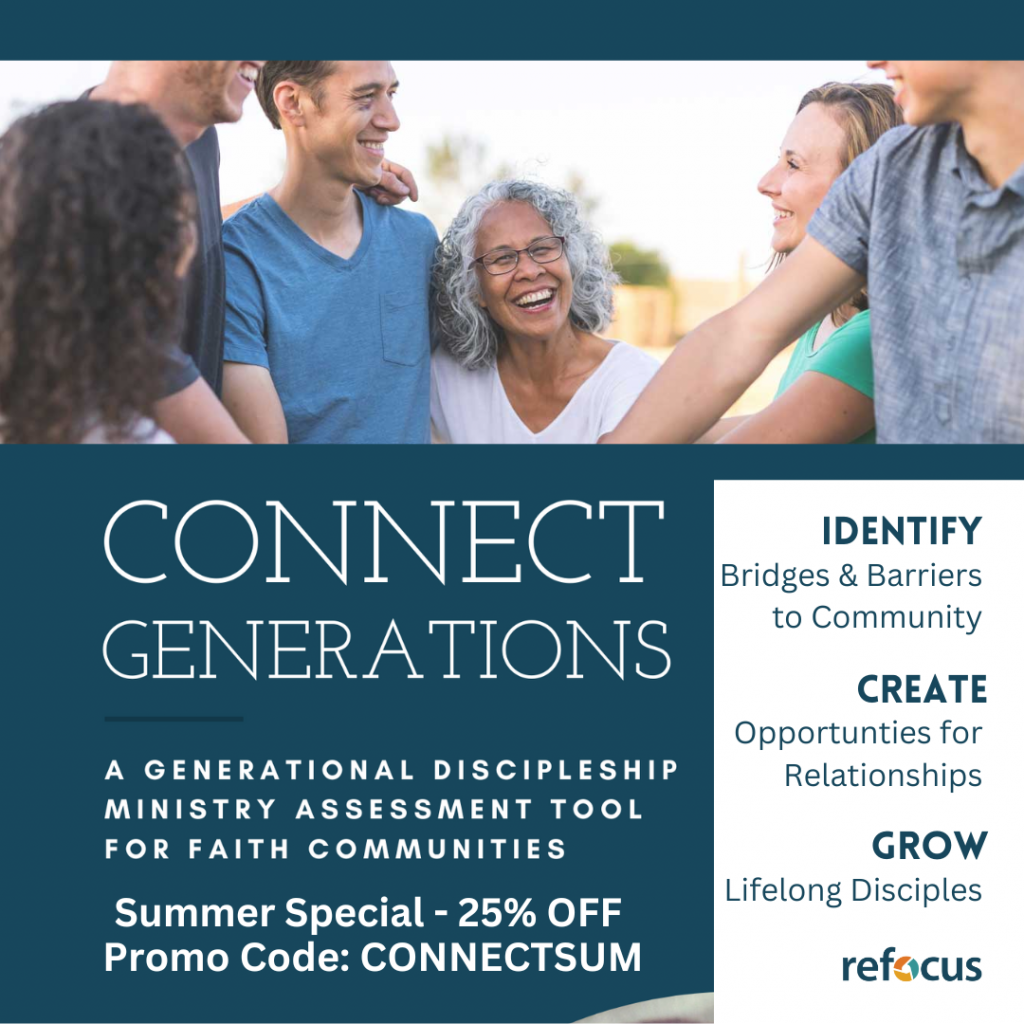“The first factor that will engage Millennials at church is as simple as it is integral: relationships. When comparing twentysomethings who remained active in their faith beyond high school and twentysomethings who dropped out of church, the Barna study uncovered a significant difference between the two. Those who stay were twice as likely to have a close personal friendship with an adult inside the church (59% of those who stayed report such a friendship versus 31% among those who are no longer active). The same pattern is evident among more intentional relationships such as mentoring—28% of Millennials who stay had an adult mentor at the church other than their pastor, compared to 11% of dropouts who say the same” (Source)
In 2020, the Church in America experienced a disruption that it was not prepared to handle. In fact, statistics show that 1 in 3 churchgoers have stopped attending church (in-person or online) since the start of the pandemic (Source). This is coming on the back of a rapid decline in church attendance over the last decade (Source).
Why? Because what we have been doing for the past two decades is not what keeps people in church. Believe it or not, our perfectly planned services and emotionally-poignant worship experiences and our super fun youth groups and our dedicated staff and high-tech curriculum are not what keep people connected to the faith.
It’s relationship. Period.
It’s the creation of a community that is integrated and intentional about being part of one another’s lives, regardless of time and space, and committed to being there for one another through all of life’s ups and downs.
In the Church, we are good at acute compassion; we will show up for each other when there is an emergency or a crisis. We are good at weekly experiences and crafting worship services, Sunday schools, youth groups, mission trips, and Vacation Bible Schools that offer temporary fixes to our emotional and spiritual needs.

We are less good at things like creating space for intergenerational relationships to flourish, where older and younger people can create lasting relationships based around conversation, prayer, mentorship, guidance, and lifelong community.
We are decidedly not good at addressing the structures in our churches that lead us away from each other such as age-segregated worship experiences and lack of communal opportunities to serve together consistently and building relationships outside of the church building and the hours set aside for “church.”
And then we wonder why each generation has fewer and fewer individuals who regularly attend church or identify as a Christian.
2020 was a good barometer for this.
For individuals who had intentionally developed relationships with people in their church, who had demonstrated the willingness to put in the work of community, to remaining connected despite being about to gather in-person, to commit to Zoom worship and in-home family Bibles studies, to text one another and check in on each other, to continue building community despite the unusual circumstances…for those people, 2020 while difficult, was not a death knell to their faith or their commitment to church.
But for those who were loosely connected or even disconnected, who showed up for the experience or attended out of obligation, who didn’t have committed discipleship relationships with anyone at church or in their faith community outside of paid staff or volunteers…. it was much easier to walk away.
What about Gen Z, the generation of young people in our churches right now?
“Parents are the most important people and the greatest influence for children. According to this study, Gen Z admire their parents, but at the same time they don’t feel family relationships are central to their sense of self. They love their parents, but still long for good role models” (Source).
I’m convinced beyond a shadow of a doubt, if we don’t want to lose an entire generation (Gen Z or the upcoming Alpha Generation), we are going to have to commit ourselves to the long-term work of intergenerational discipleship, mentorship and relationship and it is going to take more than showing up on Sunday morning and occasionally volunteering in children’s ministry or giving towards the youth group mission trip.
Church as usual is not enough. It is time for a change. And it doesn’t start in a building. It starts in a community who says, “I refuse to just show up when there is an emergency or a need. I’m showing up when life is looking pretty good and I’m digging deep into relationship with intention and purpose. I’m going to relentlessly pursue relationships even if it is hard and rejection happens and I feel alone.”
We’re going to have to show up in the spaces and places where the younger generations are – the uncomfortable spaces like social media and the unspiritual spaces like ball games and the deeply spiritual spaces like committed prayer partnerships – and build intentional community as though our spiritual lives depended on it.
A version of this article first appeared on this blog here.
Connect Generations Coaching
“We just need to know where to start.”
If you’ve ever said this in regards to creating a discipling community across generations in your church, we hear you. And we’re ready with an answer that is tailor-made for your congregation.
Connect Generations is a one-time intensive coaching experience that helps your church pinpoint the bridges and barriers to generational discipleship in your church and plan a course of action that will begin bring all ages together in life-giving relationships.
This coaching experience includes our Connect Generations Ministry Assessment, a personalized chart to identify your challenges and opportunities, and an hour-long coaching session with Christina Embree to get you started.
Family Faith Formation: Fill Your Toolbox
The heart of Family Faith Formation is families spending time together around the Word of God within the context of the larger faith community.

Many parents express frustration about the lack of support and equipping they experience when it comes to leading their kids spiritually at home. Churches often encourage parents that they are the ones who are called by God to disciple their kids but frequently don’t provide the training, experience and resources needed for them to feel adequately prepared for that work.
Our Fill Your Toolbox curriculum gives parents what they need and churches what they desire. Each block contains five lessons focused on introducing, learning, and practicing specific discipleship strategies.

Christina Embree is the founder and director of ReFocus Ministry. She holds a masters in ministry focused on Children, Youth, and Family Ministry and a doctorate in spiritual formation with a focus on age segregation and intergenerational ministry. In addition to coaching churches of multiple denominations and traditions all around the globe, Christina serves as the Minister of Generational Discipleship for the Great Lakes Conference of the Brethren in Christ and as a pastor at Plowshares Brethren in Christ in Lexington, Kentucky. She is widely recognized as a speaker and author in the areas of generational discipleship, intergenerational ministry, and family ministry. As the mother of three children, she is familiar with the challenges of faith at home and pastoral ministry. She along with her husband Luke share a love for the church, their community, and the global work of peace and restoration through Jesus.



